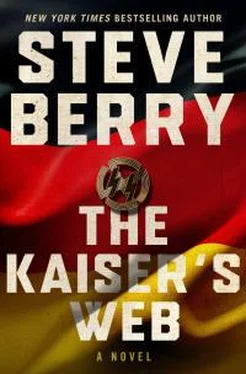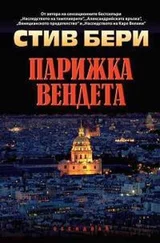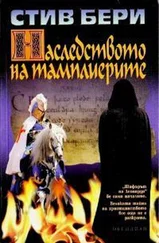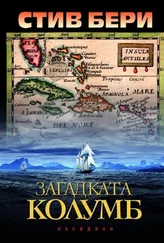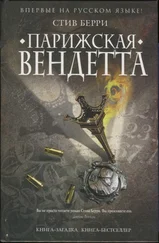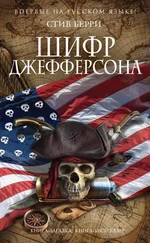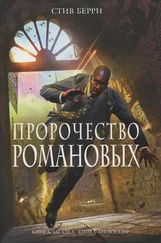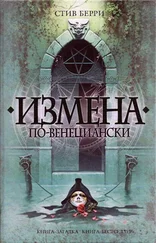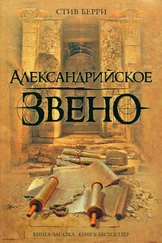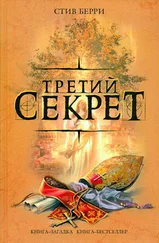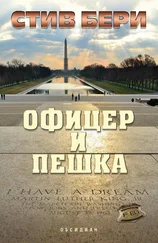She realized not much would have to be said. He knew almost everything. As always. The weight on her shoulders seemed to have doubled over the past few minutes. This was turning into madness.
The car eased across Worms to her next appearance.
She faced the old man and told him everything she knew.
“It would seem,” he said, “that the hunter has now become the hunted. That tainted money clearly went into our accounts.”
“I need to speak with Kurt.”
“I should say so.”
“I know nothing about any of those transfers. Absolutely nothing.”
“Obviously. Why send people to utterly destroy yourself? Time is a problem, though. This can be contained for only so long. You have enemies within the security forces who will relish this opportunity.”
On that point he was right. “I’ll find Kurt.”
Brümmer heaved a sigh and settled back into the seat. “Do that. But I do not envy your task, Marie. Not in the least.”
CHAPTER FIFTY
FREE STATE, SOUTH AFRICA
6:15 P.M.
Engle stared into the aquarium. A huge pink anemone writhed gently in the agitated water as a squadron of orange-and-black clown fish wiggled between its opaque tentacles. The elongated game room dominated the house’s east side and was lined with built-in aquariums, each one displaying a variety of colorful saltwater and rather dull-looking freshwater species. Books and globes added more of the taste of an adventurer.
“The freshwater species in the other tanks are far more expensive,” his host said after he commented on the difference. “They come from a variety of habitats here on the continent. Some are quite rare.”
And his host was apparently an avid collector. On the walk from the front door he’d spied a Cézanne, a van Gogh, two Diego Riveras, Kangxi porcelain, and a variety of African art, which he knew little about. Wall cupboards and a camphor cabinet were filled with elaborate silver. He’d also learned that the big man’s name was Jan Bruin, the estate’s owner, the precise individual Pohl had instructed him to find.
They sat and a thin African retainer dressed in a stiff-looking shirt and tie appeared, then retreated with drink orders. He settled onto a sofa that faced an ensemble of leather club chairs. An elaborately carved table supported by four gleaming tusks filled the space in between and displayed what appeared to be a mother-of-pearl chess set. The surrounding walls were clad in Elizabethan panels and dotted with trophies and photographs from past hunts. The room seemed a place to sit and remember.
“A bit politically incorrect,” he said in German, motioning to the table, then to the lion, elephant, and rhino heads on the walls.
“Not here,” Bruin declared in English. “Hunting was a way of life for us. You are correct, though, in one respect. Those days are over. Today we stalk with cameras. But I remember, as a child, how exciting a hunt could be.” Bruin tossed him a penetrating gaze. “You said outside that you have come on behalf of Theodor Pohl. How is the Kaiser?”
The steward returned with the drinks, and Engle took a moment to enjoy a few sips. The wine was tart and tasty.
“Excellent wine,” he said.
“Made here in South Africa. Now, could you answer the question.”
He decided he’d had enough of the pretext, especially since this man knew Pohl’s nickname. “He is engaged in a bitter election fight for the chancellorship of Germany.”
“I read about that. You do know that he and I have never met.”
“I know that. But, Herr Bruin, I am aware of your lineage. Your father was a man named Gerhard Schüb. He immigrated to South Africa after the war, arriving from Chile with another individual named Luis Soreno, along with Soreno’s wife, Rikka. I understand your father passed on two years ago.”
“He did. He lived a full life. My mother died before him. She was fortunate.”
“In what way?”
“To have a long life, too. What else?”
He let the remark pass and asked, “Have you had any contact with your aunt Ada, who lives in Chile?”
“I’m at a loss. I never knew I had an aunt.”
“Your father never spoke of her?”
“My father was a most secretive man. He kept many things to himself. I was unaware we had any living relatives on his side of the family.”
“Did your father leave any papers behind? Letters, perhaps? From his sister, Ada.”
Bruin’s brow creased in amusement. “That would have been most unlike him. The Kaiser knew my father well, so he knows the answers to these questions. My father was not one to keep things. And as I said, I had no idea I had an aunt, so there were no letters to find.”
“Did he leave any papers concerning a Luis Soreno?”
“Did you not hear me? My father left no papers when he died. Nothing. Why is this of concern now? I have heard nothing from Germany in a long time. Now this interrogation.”
He chuckled. “Did I say anything was a concern?”
“You did not have to. Your presence here says it all. I must tell you, Herr Engle, I do not like anything even remotely associated with new-right politics.”
“Such a strange position from one who lives in the Free State. Was this not the original bastion of apartheid? Its birthplace.”
Bruin dismissed the observation with the swipe of a big paw. “Before my time. I have never adhered to those policies. Not every South African is a racist or a white supremacist. My father was neither. He was a good man who did his duty until he died. He never supported any of those policies. Quite the contrary, in fact. He and I both have little patience with fanatical causes.”
“I represent no such cause.”
“Really? Here you are in South Africa, in my home, asking about Nazis from over half a century ago. What possible relevance could any of that have today?”
“Why did you mention Nazis?”
Bruin shook his head in apparent disgust. “As you say, let us not play games. You and I both know of Luis Soreno. And Rikka. That much I was made aware of.”
He let the moment pass by, retrieving his drink and sipping more wine. “I think it best neither of us speak of them.”
“I agree. The last thing I want is for the world to descend on this house. Let him, and his bride, rest in their graves. There is no danger of me ever speaking of that. It would be the last thing I would want.”
“How do you know about them?”
“My father told me, right before he died. It mattered not by then. Everyone was dead. But he made it clear that it was his affair, not mine, and it was over, and had been for a long time.”
So why had Ada directed Malone and Vitt here?
Bruin pointed. “Go back and tell the Kaiser that there is nothing for him to fear here. He can become chancellor of Germany and I will not give it a second thought. I, too, am in politics. I represent this area in the national assembly, but only with a minimal zeal. I prefer to stay to myself, grow my cherries, and raise ostriches. Both bring me much more joy.”
“No wife?”
“I have never married. I live here alone, save for my dogs, my birds, my fish, and a few employees.” He seemed proud of the fact.
“Let me ask again. Your father left no papers? No correspondence? Nothing?”
“Herr Engle, my father was a private man who only in the last few months of his life opened up to me. That was hard for him, but he wanted me to know who he was and what he believed before he died. He despised Luis Soreno and all that the Brown Eminence represented. My father came to Africa for one reason, but he stayed for quite another.”
He swallowed more wine as he allowed the man to talk. “And what was that?”
“He loved this country. It became his home. He managed to accumulate some wealth and bought this land. Today I have a fortune invested here. He wanted my life to be different from his, and it has been. Let the Nazis remain dead and gone. No one need ever be concerned with them again. I for one waste not a thought on their folly.” There was a hesitation, as if a memory interjected itself, then faded. “Now, could you tell me precisely why you are here?”
Читать дальше
